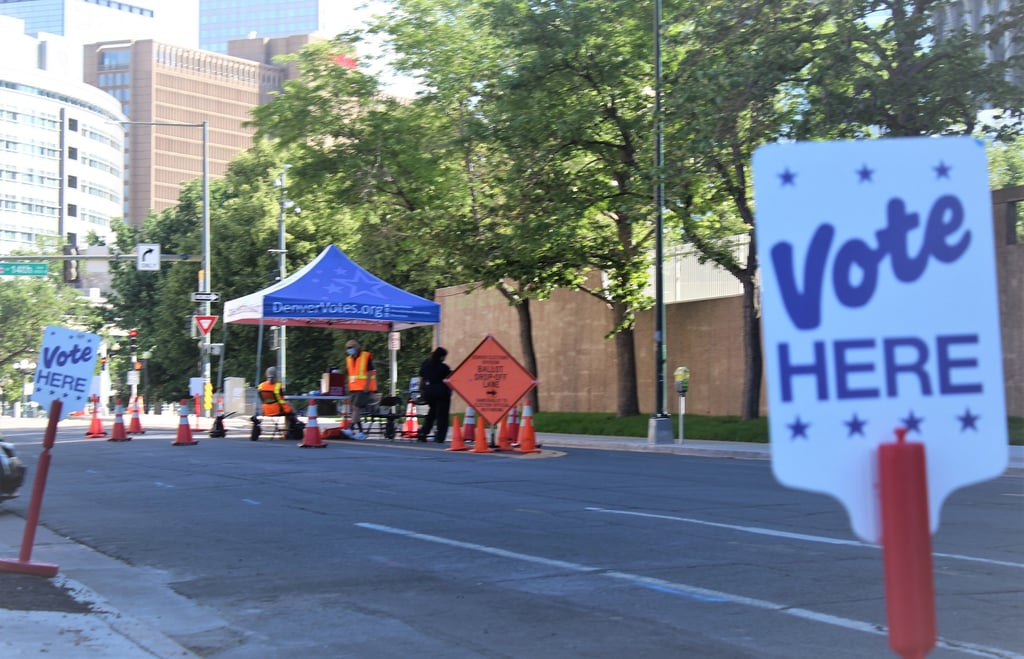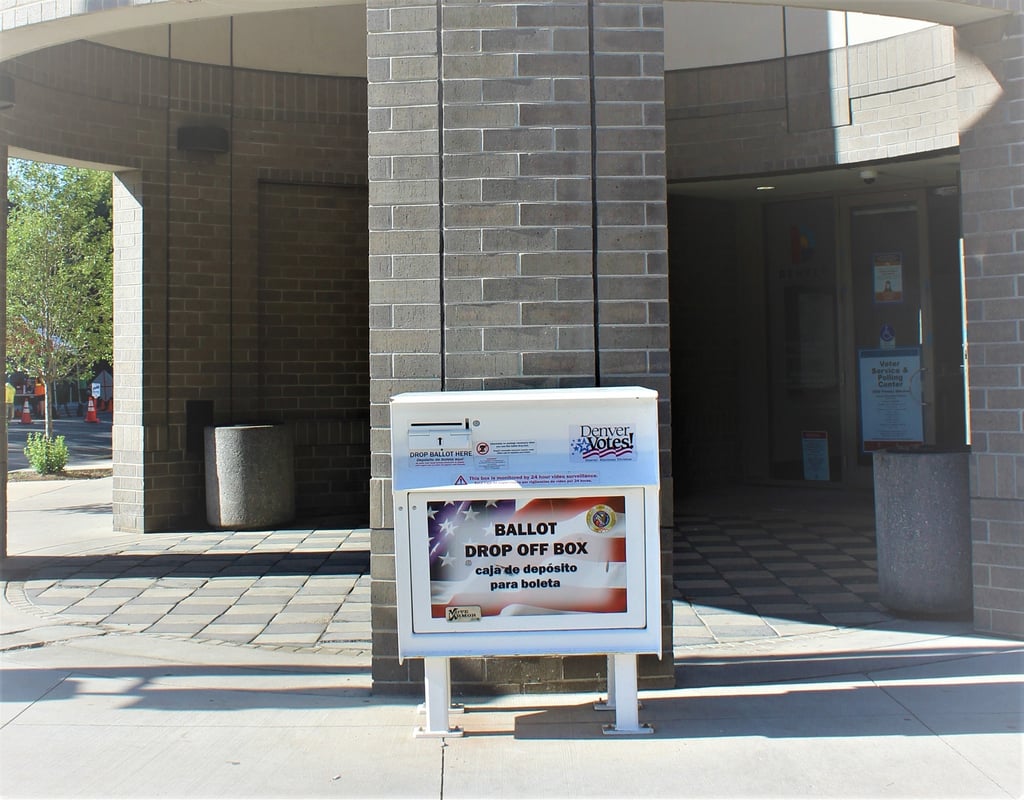DENVER (CN) — Colorado voters hit the polls Tuesday to decide which Democratic candidate will challenge an incumbent conservative backed by President Donald Trump for a U.S. Senate seat in November.
Former Governor John Hickenlooper and former Speaker of the State House Andrew Romanoff are both vying to turn up the heat on Republican Senator Cory Gardner.
For “Any-Dem-Will-Do Blues,” Gardner’s pro-Trump track record makes him an easy target to aim for. Within the party however, many Democrats are divided on whether to put forward quirky centrist Hickenlooper or polished progressive Romanoff.
“All I’ve seen lately is slander. I voted for Hickenlooper because he’s been making big moves since day one,” said Leigha Wickham, a Denver Democrat wearing a fitted blue cloth mask and round sunglasses.
But Wickham said Hickenlooper hasn’t been perfect either. “With our current social issues, I think there needs to be a dismantling and looking at everything systemically from the ground up. Considering police were originally policing slaves and that’s where the police force was born, it’s ignorant to think we don’t have systemic issues there.”
In the wake of the tragic 2012 Aurora movie theater shooting that left 12 people dead, Hickenlooper pushed for magazine limits and gun reform. In the face of protests led by Black Lives Matter over police brutality and the death of George Floyd, Hickenlooper said he supports reform over defunding the police.

The suburban scars from gun violence never quite fade from memory, and so University of Colorado political science professor Ken Bickers said shutting down the police force statewide may be a hard sell.
“The outcome of the election is going to be determined by the suburbs,” Bickers said. “The police are generally viewed positively by the suburbs and certainly this state has had a history of high profile and awful shootings in schools. The idea of defunding the police plays into the whole fear about how safe will children be when they go off to school?”
He added, “I don't know how many Democrats out there are principally animated by those issues of police reform, or more household kitchen table issues like health care. One of the reasons why it's going to be an interesting election is to see where the center of gravity is in the Democratic Party.”
Although generally liked and supported by the Democratic National Committee, Hickenlooper’s Senate campaign had several hiccups leading up to the primary. On June 5, the Colorado Ethics Commission fined Hickenlooper $2,750 for accepting free travel during his last months in office. Now many of his centrist policy stances like opposing “Medicare for All” — which Romanoff backs — and supporting fracking — which Romanoff opposes — are being tested by the energized progressive wing of the party.
The voice of independent voters jointed leftist Democrats in supporting Vermont Senator Bernie Sanders’ presidential bid on Super Tuesday in March.
“I was full-blown Bernie and I was upset that it’s [Joe] Biden and Trump,” said Patrick Peterson of Denver while waiting for his bus. Through a white N95 mask, he said he supported Romanoff in the state primary. “I went to see what candidate the groups I support were backing, like Black Lives Matter, the NAACP, stuff like that. That’s why I definitely did not want Hickenlooper in there anymore.”
Other independents question whether Hickenlooper will present a strong enough voice in the U.S. Senate, which is currently held by Republicans.
“Hickenlooper’s really popular for good reasons, but his policies are milquetoast and I don’t think he’s really driving us toward anything,” said Peter McGuire, through a blue cowl that covered his neck to his nose. “I don’t think he’ll have a strong voice in the Senate other than to continue unfettered capitalism.”
McGuire, who unregistered from the Democratic Party when the state opened primary elections to unaffiliated voters, said “Romanoff seems to have a clear stance on how to make the world better and make the economy better. Gardner has repeatedly voted along Trump lines, against the will of Colorado voters which is really frustrating.”
Gardner is running unopposed, but his supporters still cast hundreds of thousands of ballots in his favor.
“To vote is to speak, to not vote is to not speak,” said Denver Republican Thomas O., who asked that his last name not be printed. There were no Republican races to settle on Thomas’s primary ticket but he voted as he has in every election, except in 1996 when he said the election was called in favor of Bill Clinton before he left work. Thomas wore no mask, saying he didn’t believe they did anything other than stoke up fear.
“I’m supporting Cory Gardner because he supports the president and the president has been fulfilling his word,” Thomas said.
Although the state has leaned left in recent elections, Democrats do not hold a majority in the Centennial State. The state’s 1.3 million unaffiliated registered voters can’t caucus, but they do participate in state primaries. Colorado is also home to more than a million Democrats and 969,495 registered Republicans.
The Colorado Secretary of State’s office said the pandemic will not impact the election schedule. The state has been using mail-in ballots since 2013 and in-person polls will remain open through Tuesday evening.
By Monday’s count, the Secretary of State's office reported about a third of eligible voters participated in the primary, including 687,346 Democrats, 456,486 Republicans and nearly 70,000 unaffiliated voters.
Subscribe to Closing Arguments
Sign up for new weekly newsletter Closing Arguments to get the latest about ongoing trials, major litigation and hot cases and rulings in courthouses around the U.S. and the world.












